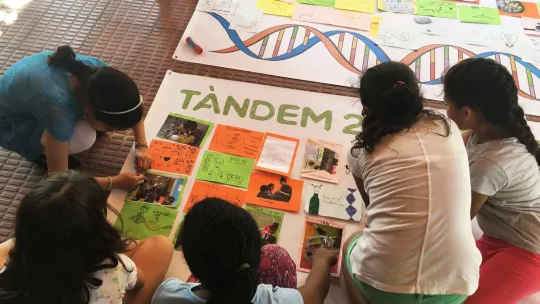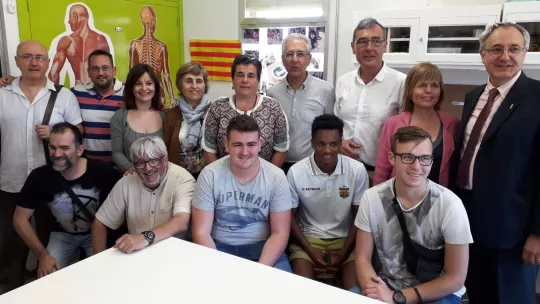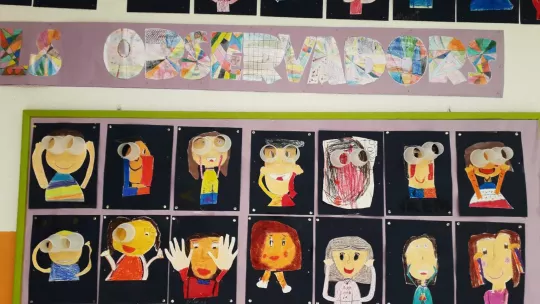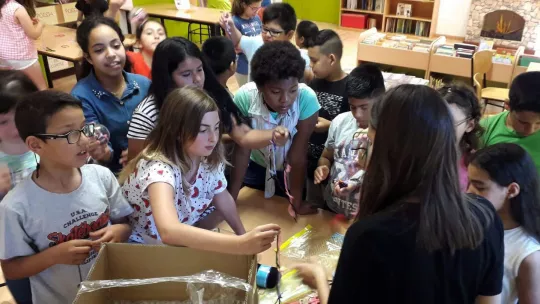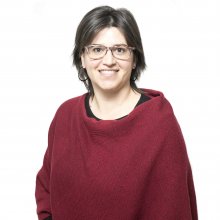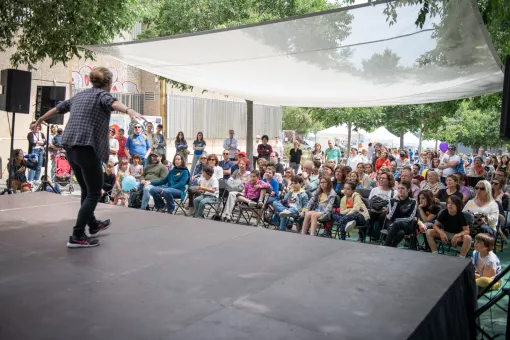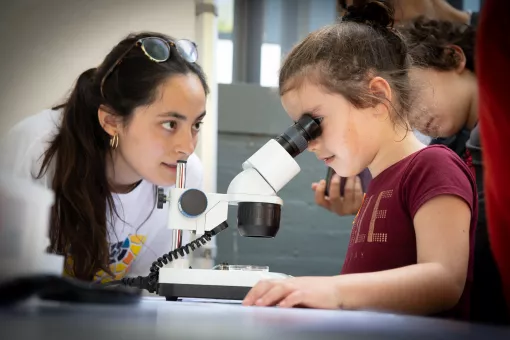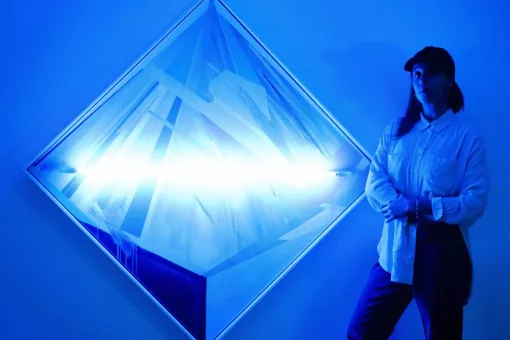Images
The new school lab has come about from the Escuelas Tándem (Tandem Schools) project, which is supported by IRB Barcelona and the Catalunya La Pedrera Foundation.
The Montserrat School and IRB Barcelona have just brought the Tandem Schools Project to a close. This educational initiative has applied science as a core theme to enhance the innovative activities, academic results, prestige, and social cohesion of the school.
Run and financed by the Catalunya La Pedrera Foundation, the project is one of the first tandems between a primary school and a scientific institute.
Today 18 June marks the end of a three-year educational innovation project based on science called Tandem Schools, which is run and coordinated by the Catalunya La Pedrera Foundation. Over this time, the state-funded Monsterrat School, in the district of Sant Ildefons in Cornellà de Llobregat, has been participating in the project under the guidance of the Institute for Research in Biomedicine (IRB Barcelona). Of the 13 tandems run by the Foundation to date, this has been the first between a research centre and a primary school.
To end the project on a high note, the Montserrat School has organised a big party, including science workshops and the theatre show "Clowntífics", for families, pupils, teachers, and collaborating entities. Representatives from the municipal authorities of Cornellà were also present. The highlight of the gathering was the opening of the refurbished school lab, which has been named the "Joan Guinovart Laboratory", in honour of the commitment of this IRB Barcelona scientist to the project.
The refurbishment of the lab has involved structural work, the renewal of material, the purchase of seven optical microscopes and material for experiments, and the acquisition of a large selection of biological tissues prepared at IRB Barcelona labs and instruction sheets for more than 150 experiments.
Developing critical and creative thinking skills
"Introducing the basis of the scientific method beyond science is a way of acquiring critical and creative thinking skills," said Joan J. Guinovart, former director of IRB Barcelona and a firm believer in investing in early stages of education in order to influence the future of generations to come. "We are most grateful and moved by the determination of the school and the Foundation to make a project of this nature work," he added.
A three-year project with a long-term impact
Spanning three academic years, Tandem projects are implemented in such a way as to have long-term effects. In this regard, special attention has been paid to teachers, who have received more than 30 hours of additional training in new methods and educational innovation per year. In addition, attention has also been given the implementation of new methods in the class through “Classroom Projects”, which cover more than 14 topics (e.g., "The day and night”, "My body", "Nutrition", "Inventions", "Blood"...) for pre-school and primary school children (ages 3 to 12), and more than 100 workshops. The teachers have also received instruction on scientific topics. All these actions have been taken with the aim to empower children and young people to learn.
For Anna I. Aso, head of the school: "Tandem has made science a core theme that has allowed pupils to develop the capacity to observe, manipulate and experiment. It has also been an opportunity to make changes at the programme, curriculum and evaluation level and to allow pupils to gain skills".
Science as a tool to drive change
"Today is a day to celebrate and to congratulate and thank the teachers at the school for accepting the challenge of using science to drive change in education," said Lluís Farrés, director of Knowledge and Research of the Catalunya La Pedrera Foundation.
More than 20 IRB Barcelona scientists have been involved in the activities programmed, ranging from interviews with scientists, workshops with pupils during the “Semana Cultural” and “Science Week”, training teachers, and attending visits to the centre by both pupils and teachers, among others.
About IRB Barcelona
The Institute for Research in Biomedicine (IRB Barcelona) pursues a society free of disease. To this end, it conducts multidisciplinary research of excellence to cure cancer and other diseases linked to ageing. It establishes technology transfer agreements with the pharmaceutical industry and major hospitals to bring research results closer to society, and organises a range of science outreach activities to engage the public in an open dialogue. IRB Barcelona is an international centre that hosts 400 researchers and more than 30 nationalities. Recognised as a Severo Ochoa Centre of Excellence since 2011, IRB Barcelona is a CERCA centre and member of the Barcelona Institute of Science and Technology (BIST).

